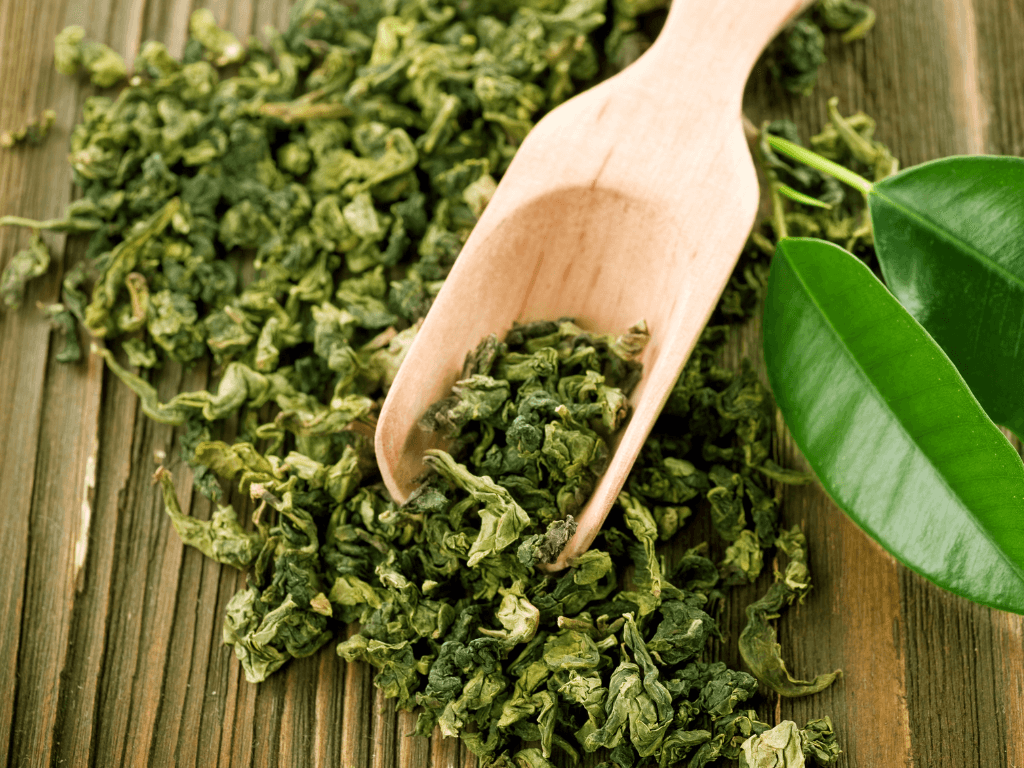Understanding the Potential Green Tea Side Effects: A Comprehensive Guide

- What are the potential side effects of green tea?
- Stomach Irritation
- Headaches
- Sleep Problems
- Anemia and Iron Deficiency
- Vomiting, Dizziness, Convulsions, and Bleeding Disorders
- Liver Disease
- Caffeine Sensitivities
- Potential Use in Managing Chronic Medical Conditions
- Hepatotoxicity and Gastrointestinal Disorders
- Effects on the Immune System
- Conclusion
Green tea has been a popular beverage for centuries, known for its numerous health benefits, including weight loss. However, as with any substance, there are potential side effects that should be considered before consuming it regularly. This guide provides a comprehensive overview of the potential side effects of drinking green tea, from stomach irritation to liver disease. By understanding these potential risks, you can make an informed decision about whether green tea is right for you and how to consume it safely. So, let's dive into the world of green tea and explore its potential benefits and side effects.
What are the potential side effects of green tea?
Consuming tea can come with numerous potential health benefits, yet it is essential to be cognizant of the potential drawbacks. A common reaction to tea is stomach discomfort, which can arise when the beverage is made too robustly or gulped on an empty stomach. This can induce gastrointestinal issues such as nausea, vomiting, and diarrhea. It is essential to keep in mind that tea should not act as a substitute for medication or dietary supplements prescribed by a medical professional.
Another potential reaction to tea is headaches, which can be caused by its caffeine content. For some people, the caffeine in tea can incite migraines or other forms of headaches. If one has a sensitivity to caffeine, it is advised to reduce tea intake or select decaffeinated varieties. In addition, it is important to take note of the possible interactions between tea and other medications or dietary supplements, as these can also contribute to headaches and other side effects.
Finally, tea may also influence sleep patterns, particularly when taken in large amounts or close to bedtime. Some individuals may experience difficulty falling asleep or staying asleep after drinking tea. If sleep is an issue, it is important to seek advice from a healthcare provider to identify the root cause and develop a treatment plan.
In some cases, it may be recommended to lessen or cease tea intake to improve sleep quality.
Stomach Irritation
A popular beverage, green tea is enjoyed for its many health benefits. Unfortunately, overindulging can lead to gastrointestinal discomfort. The tannins and caffeine present in strongly brewed green tea can cause queasiness, abdominal pain, and even vomiting when consumed on an empty stomach. To avoid these unpleasant side effects, it is best to enjoy green tea in moderation and with a meal.
Though some may have a higher tolerance, those prone to stomach issues or with a history of GI problems should be careful when drinking large amounts of green tea. It is important to pay attention to your body and regulate your consumption to prevent any unpleasantness.
In addition, excessive intake of green tea can exacerbate existing medical conditions. Those with liver disease, for example, should limit their intake as it can worsen their condition. Before making green tea a part of your diet, it is recommended to consult with a healthcare professional.
Headaches
One potential result of imbibing green tea that is frequently mentioned is headaches, particularly for those delicate to caffeine. Although green tea normally has lower levels of caffeine than coffee, it can still be sufficient to induce headaches in some individuals. Furthermore, headaches could be connected to other elements in green tea, such as tannins. It is essential to note that not everyone will experience headaches after drinking green tea, and the intensity of the headaches may differ depending on the person.
There are also a few other considerations if you are dealing with headaches after consuming green tea. For instance, drinking green tea on an empty stomach may raise the risk of headaches and other gastrointestinal distress. Additionally, brewing green tea too strongly or leaving it too steep for too long may also add to headaches and other side effects. To find a balance that works for you, it may be helpful to experiment with different brewing methods and steeping times.
Sleep Problems
For centuries, this popular refreshment has been enjoyed due to its multiple health advantages. Nevertheless, some individuals may have difficulty sleeping after indulging in this beverage. Studies have discovered that the caffeine content in it can disturb the regular rest cycle, making it hard to drift off or remain asleep. Additionally, some might even have intense dreams or nightmares, which further aggravates the sleeping issue. If you are sensitive to caffeine, it is suggested to abstain from drinking it close to bedtime or in the evening.
Aside from caffeine, this beverage also contains other components that could possibly influence sleep. For example, theanine is an amino acid located in green tea that has been found to have a tranquilizing consequence on the brain. In spite of this, some studies have revealed that high doses of theanine can in fact lead to amplified anxiety and restlessness, which can further exacerbate sleep troubles. It is important to note that the effects of theanine on sleep may differ depending on individual factors such as age, gender, and general health.
To minimize the risk of sleep issues connected to drinking it, it is essential to consume it in moderation and at suitable times. For example, drinking it in the morning or early afternoon can help to avoid disturbances to the natural sleep cycle. It is also suggested to drink it with food, as this can aid to slow down the absorption of caffeine and other compounds in the beverage.
If you are going through sleep problems after sipping this beverage, it is recommended to consult with your healthcare provider. They can provide guidance on how to manage your symptoms and may suggest alternative treatments or strategies to assist in improving your sleep. It is important to remember that while this beverage can provide numerous health benefits, it may not be suitable for everyone and could cause adverse effects in some individuals.
Anemia and Iron Deficiency
Anemia and iron deficiency are grave health issues that plague millions of people around the globe. Unfortunately, imbibing green tea has been associated with exacerbating these conditions due to the presence of tannins, which impede iron absorption. Tannins are polyphenolic compounds that bind to iron in the digestive system, making it difficult for the body to take it in. This can lead to iron deficiency anemia, a situation in which the body does not have enough iron to manufacture hemoglobin, the protein responsible for carrying oxygen to the body's tissues. To avert exacerbating these conditions, it is suggested to stay away from drinking green tea close to meals and to consume foods rich in vitamin C, which assists in increasing iron absorption.
It is important to recognize that not all types of green tea have the same amount of tannins, and some may contain higher levels than others. Additionally, the brewing time and temperature can also sway the tannin content in the tea. To decrease the danger of intensifying anemia and iron deficiency, it is suggested to go for high-grade green tea with lower tannin content and to brew it for a briefer time at a lower temperature.
In spite of the fact that green tea has numerous potential health benefits, it should be taken with caution by individuals with anemia or iron deficiency. It is pivotal to consult with a healthcare practitioner prior to incorporating green tea into the diet, particularly when displaying symptoms related to anemia or iron deficiency. With respect to the possibility that the potential drawbacks of green tea may intensify these conditions, it is imperative to ponder the risks and advantages of taking green tea, taking into account individual health and medical history.
Vomiting, Dizziness, Convulsions, and Bleeding Disorders
The potential repercussions of imbibing green tea are not to be taken lightly. Such effects could range from slight to severe, and they include vomit, giddiness, fits, and bleeding disorders. The epigallocatechin gallate (EGCG) found in the beverage could be to blame for these issues.
Vomiting and lightheadedness are common occurrences as a result of the caffeine content of this tea. High doses of it could lead to seizures. Vitamin K, which is abundant in green tea, can interfere with blood coagulation, thus producing hemorrhages.
Drinking green tea on an empty stomach should be avoided to reduce the likelihood of experiencing these side effects. Individuals with existing conditions such as anemia or liver disease should be especially cautious. If these symptoms manifest, it is advisable to seek medical assistance immediately.
Liver Disease
Liver illness is a grave medical problem that affects millions of people around the world. Although there is a multitude of potential sources of liver disease, recent research indicates that drinking green tea may aggravate the condition. This is because green tea contains high amounts of antioxidants, which can add extra pressure to the liver and make it more challenging for the organ to operate correctly. On the other hand, some studies suggest that certain compounds in green tea may be advantageous for those with liver disease, so it is important to talk to your doctor prior to adding green tea to your diet if you have this condition.
If you have been diagnosed with liver disease, it is essential to be aware of the probable risks connected with drinking green tea. Drinking green tea on a devoid stomach, for example, may raise your possibility of experiencing adverse reactions. This is because the caffeine in green tea can make your liver discharge more glucose into your bloodstream, which can worsen your symptoms. If you do decide to drink green tea, it is crucial to do so in moderation and to only take it with food to minimize the risk of difficulties.
Although more research is needed to completely comprehend the relationship between green tea and liver disease, there is increasing evidence to point out that drinking green tea may be damaging for some affected by this condition. If you have liver disease, it is essential to talk to your doctor about your eating habits and any potential hazards related to consuming green tea. Your medical provider can help you determine the optimal course of action to take based on your individual needs and medical history.
Caffeine Sensitivities
For those who are sensitive to caffeine, drinking green tea could result in unfavorable reactions. Caffeine has the capacity to affect the central nervous system, potentially causing a rapid heartbeat or palpitations. Additionally, it can cause jitters, uneasiness, and restlessness in some people. Therefore, it is crucial to be mindful of the body's reaction to the beverage.
To minimize the risks of negative outcomes, it is best to limit the intake of green tea. Moreover, drinking it on a full stomach is recommended to reduce the chances of encountering any side effects. If symptoms such as headaches, nervousness, and trembling occur, it is wise to discontinue its usage or opt for decaffeinated green tea.
Caffeine sensitivity differs from person to person thus, it is important to be aware of one's own body's response. To be on the safe side, it is beneficial to consult a health professional before continuing the consumption of green tea.
In conclusion, green tea can be enjoyed in moderation without the fear of experiencing adverse reactions. It is important to remember that caffeine sensitivity varies from individual to individual, and it is necessary to be mindful of one's own body's response. By following these guidelines, one can enjoy the benefits of green tea without any negative effects.
Potential Use in Managing Chronic Medical Conditions
The polyphenols present in green tea are being explored for their capability to manage certain chronic illnesses. These compounds have been observed to have antioxidant, anti-inflammatory, and immunomodulatory properties which could be advantageous to patients afflicted with ailments like diabetes, cardiovascular disease, and cancer. Studies have demonstrated that the polyphenols of green tea are competent in regulating glucose levels and enhancing insulin sensitivity, a potential plus for those with type 2 diabetes. Additionally, research has linked the drinking of green tea to a decreased risk of cardiovascular disease due to its ability to reduce blood pressure and better lipid profiles.
The polyphenols of green tea are also being looked into for their potential anti-carcinogenic effects. These compounds have been observed to have anti-proliferative, anti-angiogenic, and pro-apoptotic properties, meaning that they could impede the growth and diffusion of cancer cells. While further investigation is necessary to completely comprehend the advantages green tea polyphenols could offer for cancer prevention and therapy, experiments have presented positive outcomes in animal and cell studies.
Moreover, the polyphenols of green tea could possibly be utilized in dealing with autoimmune and inflammatory disorders. These compounds have been observed to have immunomodulatory effects, which indicate they are able to control the immune system and reduce inflammation. One study found that the polyphenols of green tea were capable of reducing the intensity of symptoms in a mouse model of multiple sclerosis, indicating their potential as a therapeutic agent for this condition.
Hepatotoxicity and Gastrointestinal Disorders
The imbibing of tea can cause hepatotoxicity and digestive system ailments. Hepatotoxicity pertains to liver damage brought on by toxic substances, and tea has been linked to liver harm in some situations. The precise cause is not fully understood, though it is hypothesized that the high levels of catechins found in tea may be responsible for liver damage. These elements have been related to a variety of liver ailments, including liver inflammation, fibrosis, and cirrhosis. Moreover, ingesting tea on an empty stomach can result in digestive system disorders, such as stomach upset, nausea, and vomiting.
It is important to take note that hepatotoxicity and digestive system disorders are the most commonly reported adverse effects of tea drinking. If any symptoms of liver damage or digestive system disorders become apparent after drinking tea, it is recommended to cease drinking it and seek medical help. Symptoms of liver damage include jaundice, abdominal pain, fatigue, and dark urine. Symptoms of digestive system disorders include stomach pain, nausea, bloating, and diarrhea. If there is a pre-existing liver or digestive system condition, it is best to consult with a doctor prior to drinking tea to avoid any potential complications.
Effects on the Immune System
Various compounds present in the beverage have been investigated for their potential impact on the immune system. Catechins, flavonoids, and polyphenols are among these, known to foster immunity by stimulating the activity of certain cells, for instance, T and natural killer cells, which participate in the fight against infections. In addition, these polyphenols have properties that may safeguard against oxidative stress-induced immune dysfunction. Therefore, green tea's potential immunomodulatory effects suggest it could be a valuable aid for multiple immune-related disorders.
Recent studies point to an additional use for the beverage, specifically in the context of COVID-19. In laboratory tests, the polyphenols of the drink have been found to impede the replication of SARS-CoV-2, the virus causing the disease. Moreover, the anti-inflammatory properties of the beverage could help reduce the cytokine storm, a serious immune reaction that can occur in some COVID-19 patients. To determine the effects of the drink on the immune system more precisely, further research is needed.
Conclusion
In conclusion, while green tea is often touted for its many health benefits, it is important to be aware of the potential side effects that can occur with consumption. Some individuals may experience stomach irritation, headaches, and sleep problems, while others may have more serious reactions such as liver disease or bleeding disorders. However, it is also worth noting that green tea polyphenols have been studied for their potential use in managing chronic medical conditions and could have positive effects on the immune system. As with any dietary supplement, it is important to weigh the potential benefits and risks before incorporating green tea into your daily routine.
Leave a Reply




Related Posts